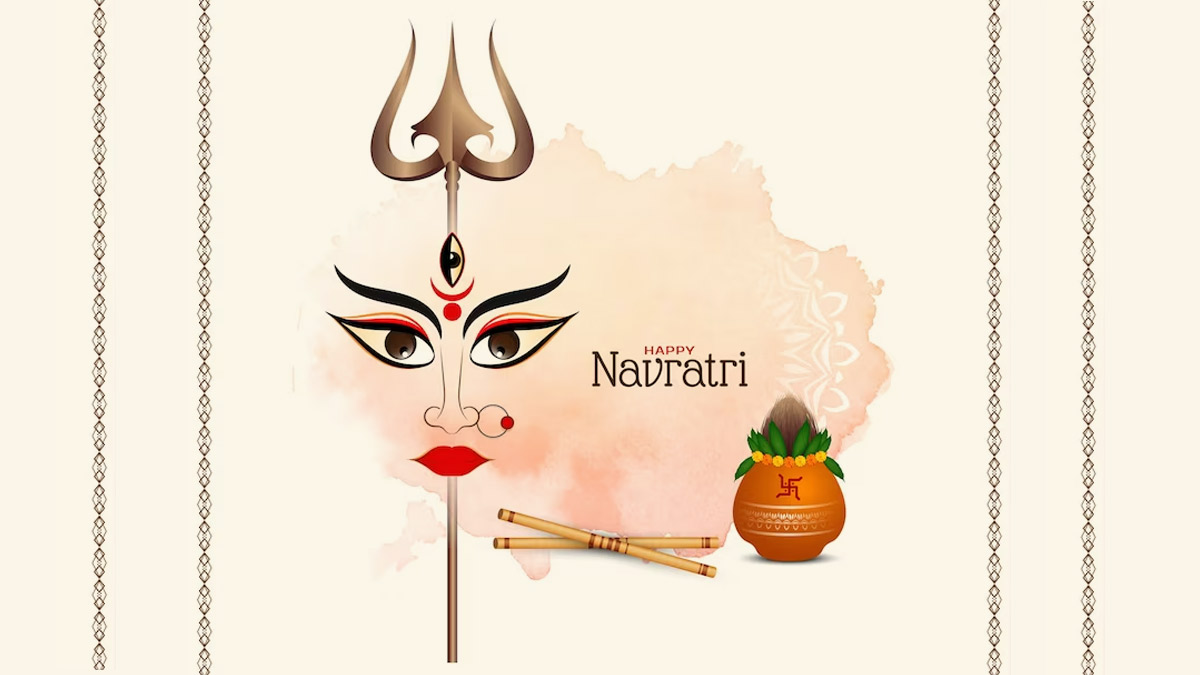
Navratri, a nine-day Hindu festival, is celebrated with great enthusiasm and devotion across India. During this period, many devotees observe fasting to purify their body and soul. This includes abstaining from certain foods while consuming others under religious and traditional practices. To ensure that you take good care of your health during this period, we spoke to our expert Dr Ekta Singhwal, MSc (Dietician), Ujala Cygnus Group of Hospitals, who listed foods to eat and avoid during Navratri fasting.
Table of Content:-
Foods To Eat During Navratri Fasting
We asked Dr Singhwal about the foods one should eat during Navratri fasting and she listed the following:
Buckwheat (Kuttu) and Water Chestnut (Singhara)
Dr Singhwal said, “These are the primary grains consumed during Navratri fasts. They are gluten-free, rich in fibre, and provide sustained energy throughout the day. Also, they keep fasting individuals feeling energised and satisfied.”
Fruits
Dr Singhwal added, “A variety of fresh fruits can be consumed, such as bananas, apples, pomegranates, and oranges during Navratri fasting. These are good sources of essential vitamins, minerals, and natural sugars. They help meet dietary requirements while keeping the fasting diet refreshing and nutritious.”
Also Read: Navratri Special: 5 Traditional Yet Powerful Fasting Foods for Overall Health
Dairy Products
Navratri fasting allows the consumption of dairy products like milk and yoghurt. Dr Singhwal added, “Consuming dairy products helps in providing calcium and protein, which are essential for overall health.”
Nuts and Seeds
Dr Singhwal said, “Nuts and seeds like almond and pumpkin seeds are a good source of protein and healthy fats and can be consumed during this fast. They can be eaten in moderation for energy and satiety.”
Vegetables
You can consume specific vegetables like potatoes, sweet potatoes, and raw bananas during this fast. These vegetables are a good source of carbohydrates and dietary fibre.
Rock Salt
Instead of regular salt, rock salt is used for seasoning during Navratri fasts. Dr Singhwal added, “It is considered a healthier alternative due to its lower level of processing and the presence of essential minerals.”
Herbs and Spices
Dr Singhwal noted, “Many people use fresh herbs like coriander and mint, as well as spices like cumin, rock salt, and black pepper for flavouring. These ingredients add taste and variety to the fasting diet while complying with the fasting restrictions.”
Also Read: Top 3 Healthy and Delicious Fasting Recipes for Navaratri
Ghee
Clarified butter or ghee can be used in cooking as it provides essential fats and adds flavour to the meals. Also, it makes the meals more appetising.
Foods to Avoid During Navratri Fasting
Dr Singhwal listed the foods that should be avoided during Navratri fasting as follows:

- Grains: Wheat, rice, oats, and other common grains should be strictly avoided during Navratri fasting
- Non-Vegetarian Foods: Meat, poultry, and seafood are not consumed during this period
- Legumes: Lentils and beans are also not allowed during Navratri fasting
- Onions and Garlic: These pungent vegetables are considered impure in many traditions, so they are avoided during this period
- Processed Foods: Packaged and processed foods, which often contain hidden non-fasting ingredients, should also be avoided
- Refined Sugar: You can replace refined sugar and products made with it with natural sweeteners like honey or jaggery
Also Read: Sabudana Is A Popular Indian Fasting Staple: But Should Diabetics Consume It?
Expert Tips To Follow During Navratri Fasting
Dr Singhwal listed some key points to keep in mind while fasting during Navratri:

- Hydration: It's essential to stay well-hydrated during the fasts. Hence, consume plenty of water, coconut water, and herbal teas to maintain proper hydration.
- Balanced Nutrition: You should ensure that your meals are balanced with a combination of carbohydrates, protein, and healthy fats to sustain energy levels throughout the day.
- Portion Control: Dr Singhwal added, “Fasting may result in excessive eating outside of fasting periods. Hence, pay attention to portion sizes to prevent consuming excessive calories.”
- Digestive Health: Some people may experience digestive issues during fasting. To combat this issue, Dr Singhwal suggested eating yoghurt and incorporating herbs like cumin to promote better digestion.
- Food Safety: Apart from this, you should also ensure that the food you consume is prepared and stored safely, especially when dealing with dairy products in a tropical climate.
- Personal Preferences: Dr Singhwal noted, “Individual dietary preferences and tolerances should also be considered. If you have any dietary restrictions or health conditions, it's important to plan your fasting diet accordingly.”
Bottomline
Dr Singwal concluded, “Navratri fasting is a time of spiritual significance and dietary discipline. From a health expert's perspective, the emphasis should be on consuming nutrient-dense, whole foods that provide the necessary energy and nutrients to sustain you through the fasting period. By following these guidelines, you can observe Navratri fasting in a way that is both spiritually meaningful and health-conscious.”
[Disclaimer: The information in this article is shared by a registered healthcare professional and is for informational purposes only. Hence, we advise you to consult your dietician if you are following a diet or dealing with any health conditions.]
Also watch this video
How we keep this article up to date:
We work with experts and keep a close eye on the latest in health and wellness. Whenever there is a new research or helpful information, we update our articles with accurate and useful advice.
Current Version
Oct 13, 2023 13:24 IST
Published By : Sushmita Sharma